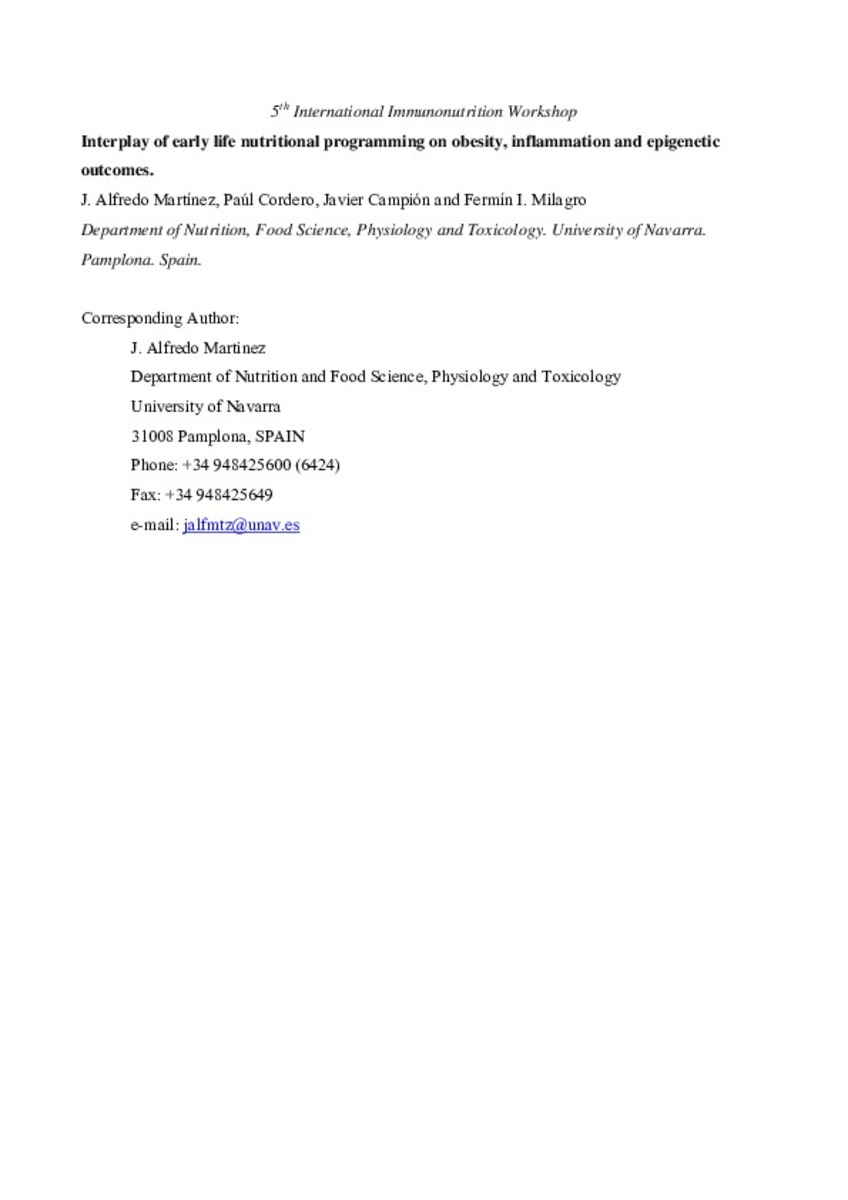Interplay of early-life nutritional programming on obesity, inflammation and epigenetic outcomes
Palabras clave :
Obesity
Inflammation
Epigenetics
Developmental origins of health and disease
Fecha de publicación :
2012
Editorial :
Cambridge University Press
Cita:
Martinez JA, Cordero P, Campion J, Milagro FI. Interplay of early-life nutritional programming on obesity, inflammation and epigenetic outcomes. Proc Nutr Soc 2012 May;71(2):276-283.
Aparece en las colecciones:
Estadísticas e impacto
0 citas en

0 citas en

Los ítems de Dadun están protegidos por copyright, con todos los derechos reservados, a menos que se indique lo contrario.







